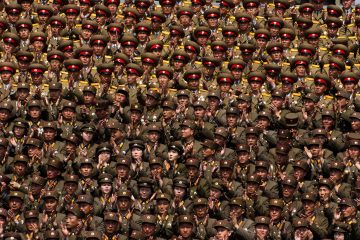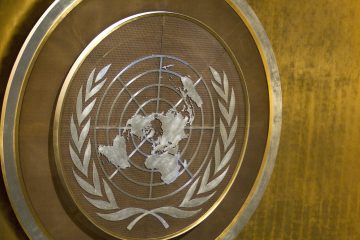
OxPol Blogcast. Nuclear Security with Edward Howell
What does security mean to different people, in different places, under different circumstances? And what do academics view as the most pressing security issues for the future? In this bonus episode, Eden Raviv speaks to Dr. Edward Howell, Lecturer in Politics at Christ Church at the University of Oxford, to try to understand the concept. Dr. Howell’s research focuses on the politics and international relations of North Korea, the Korean Peninsula and East Asia. Join them as they discuss his latest book, North Korea and the Global Nuclear Order: When Bad Behaviour Pays (2023) and talk about North Korea, nuclear proliferation and bridging the divide between academia and policy. Listen on:
OxPol Blogcast Episode 5: Biden’s North Korea Policy
Welcome to the OxPol Blogcast, a podcast where we will be sharing research, analysis, and experiences from members of the University of Oxford’s Department of Politics and International Relations. On each, episode we will talk to a guest about a piece they’ve written for the OxPol Blog. Then, we’ll discuss their larger research agenda, their insights on conducting political science, and their time at Oxford. On this episode of the OxPol BlogCast, host Chase Harrison talks to Stipendiary Lecturer in Politics Edward Howell about Biden’s policy on North Korea, regional relations around the Korean Peninsula, and exact you conducts research on a notoriously closed off country like North Korea. Read the original blog post here: https://blog.politics.ox.ac.uk/washington-and-pyongyang-back-to-square-one/

Nuclear weapons and the dialectic of universalism: the UN convenes to ban the bomb
In late March of this year, a majority of the world’s states will meet at the United Nations headquarters in New York City to start negotiations on a nuclear weapons prohibition treaty. It will be a landmark event in international history. Not only have such negotiations never been held before—nuclear weapons remain the only class of weapons of mass destruction (WMD) not explicitly prohibited by international law—the process itself also marks a turning point in multilateral diplomacy. Emerging as an element of the European “standard of civilization” in the 19th century, the laws of war were meant, in part, to distinguish “civilised” Europe from the “uncivilised” rest of the world. As the good news and its missionaries spread to ever …









